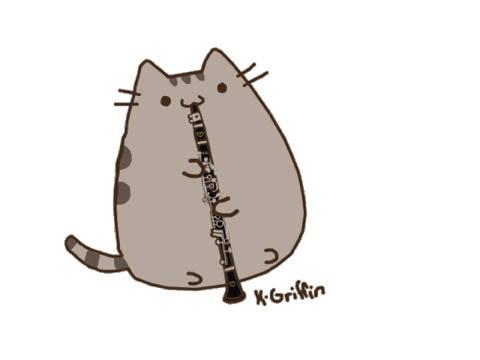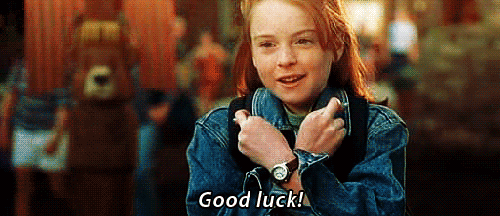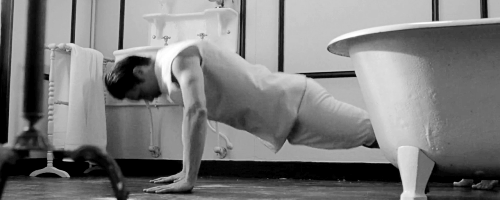With their lucky charms, bizarre rituals and arcane mantras, the average artist can be an irrational being.
A soloist walks onstage. Her demeanour is relaxed, calm. She begins, playing with grace, poise and effortless technical command. Her instrument floats, soars and sweeps. From the audience, we imagine her mind free of nerves, her thoughts supremely focused.
But there is more here perhaps than meets the eye. We all have a cultivated public side and a carefully hidden private side, and our soloist is no different. Her onstage persona may be calm and focused. But what lies behind the curtain? What might we discover backstage, minutes before the concert begins?
Inescapable anxieties
Stage fright has brought the greatest musicians to their knees. “I am not fit to give concerts,” wrote Frédéric Chopin. “The audience intimidates me, I feel choked by its breath, paralysed by its curious glances, struck dumb by all those strange faces.” Vladimir Horowitz had to be physically pushed onto the platform. Enrico Caruso could only be cajoled with heavy medication.

Instruments are complex and vulnerable machines, destabilised by a fractionally off-kilter muscle. Memories are delicate film-reels, from which patiently constructed images may warp or deform in an instant. Peerless perfection feels worryingly, disturbingly out of reach. When the stakes seem so high, when the human body reacts with sweats and shudders and vomiting, how do musicians cope? How does the show, as it were, go on?
I talked to 50 fellow musicians about strategies for dealing with pre-show anxieties and stresses. Their answers were funny, surprising, moving and varied, opening a window on a private emotional landscape too often hidden from the audience.
Camaraderie
“Everybody must fist bump everybody else. Break the chain and it’s bad luck.” The percussion quartet known as So Percussion are obsessive about this 15-year-old pre-concert ritual that connects them to the support of their musical community. Double bass player Janey Mac’s ritual has more zest. “We sing a shanty. It gets our energy to the same level, unifies the crew and takes away nerves.” A little light scuttlebut works for flautist Jarrod Schindler who loves to “gossip and giggle at something with my colleagues, then play”. But first, “always gossip”.
The voices of loved ones bring us to a place of comfort, of heart and hearth. Alabama flautist Lisa Wienhold likes to call her mum in Alaska. “She was my first music teacher and is my biggest fan.” Family members meaningfully link us with the safety and security of ‘home’. Singer Benjamin Teague religiously called his grandfather, also a musician, before high-pressure performances. But his grandfather recently died. “I haven’t adjusted.”
If the stakes of a performance can seem life-or-death, a gentle reminder of the outside world may ground us. Cellist Kyra Saltman researches where she’ll eat after the concert on Yelp. “I replace one obsessive animal instinct (to run and hide under a desk) with another one (eating food).” Pulitzer Prize-winning composer Jennifer Higdon always leaves her hotel television on, “as a reminder that life goes on, no matter how well, or not, the concert goes”.

Two fellow Australian musicians have a particularly unusual displacement strategy. “I don’t wee before I go on,” says tenor Kanen Breen. Bassoonist Hugh Ponnuthurai agrees with him. “Busting for a wee keeps me focused on getting through, and not
over-focused on just my performance.”
Polar opposites
Artists tend toward extremes. Some, like flautist Jara Kern, need quiet and calm. After eating a banana, Jara likes to sit in a dark room, breathing to relax each body part. “I find my best focus when I shut down the chatter in my mind,” she explains. Guitarist Katrina Leshan does her hair and make-up very methodically, then plays a glacially slow scale, listening for every pitch to die away before moving on to the next.
Others scream and jump around. Writer and musicologist Kathryn Bacasmot observed the elaborate and athletic body movements of a pianist who was bopping to ‘90s pop while wearing his suit and tie, commenting that it was like “watching a boxer preparing for a fight.” And violinist Erica Dicker has appropriated the aggressive pre-concert ritual of an unnamed but very famous soloist. “I shout ‘Fuck ‘em!’ backstage at the top of my lungs a few times.”

It might come as a surprise that classical performers would avoid classical music before a show. Guitarist JB Taylor listens to the Plain White T’s song Hate is a Strong Word, and it’s easy to imagine him singing these lyrics to his misbehaving instrument: “But I really, really, really don’t like you.” Phil Collins’ Take me Home was a perfect tour anthem for So Percussion’s Adam Sliwinski, who played the song backstage on the first night of a long tour, and, after the show’s success, they repeated it every night thereafter.
Occasionally a ritual, when not employed, can have embarrassing consequences. Violist Doyle Armbrust, before stepping onstage, always checks his fly. Not once. Not twice. But seven times!
Magical thinking
We often scoff at the superstitions of others: at South Koreans, who have a phobia of electric fans; at the Spanish, who believe that eating 12 grapes at the stroke of New Year ensures good luck; at Australian convicts, who hid items of clothing to ward off evil spirits. The word itself, which has fallen out of favour, is associated with naive, even kooky people.

But superstitions are common to us all. According to Daniel Kahneman, in his book Thinking Fast and Slow, every person has two brain systems. Our “fast system” is intuitive and automatic, our “slow system” is rational and logical. We assume that our slow system inhibits the rash thoughts of our fast system, but it often fails, leading to “magical thinking”.
It fails us most when we feel out of control. Sitting backstage, spiralling into mental chaos, performers turn to superstitious behaviours in order to recapture a sense of control. We grab for objects and actions to balance us, to get us back on track.
Lucky charms
Objects contain power. Clarinettist Alejandro Acierto was given a kola nut blessed by a Gambian griot (a West African storyteller and musician) as a gift for good luck and prosperity. He keeps it wrapped in a cloth, because “if it touches the ground,” he was told, “then the luck will go away”. Composer and conductor Paul Stanhope relies on more commonplace things: his lucky Guinness socks (“Everything is better with Guinness”), which he wore out from overuse. Erica Dicker’s bassoonist father attributes his past audition successes to the magical properties of eating a quarter pounder with cheese.

Objects with a strong personal connection possess unique meaning. Oboist Alexander Miller and clarinettist Gregory Oakes both wear their grandfather’s cufflinks, handed down from grandfather to father to son. Alexander’s father “gave them to me when I had a piece played in Carnegie Hall. I kiss them before walking on stage.” Gregory’s cufflinks “keep me connected to him, years after he passed away.”
One object in particular holds a particularly strong significance for a very special breed, the orchestral librarian. “I never step on the top of the conductor’s podium,” says Carole Keller. Librarian Eliza Bangert agrees: “It belongs to the conductor.”
Toi toi!
Many cultures deploy throwing or spitting motions to reverse bad luck. Opera singers have adopted a curious variant, warding off evil spirits with a symbolic spitting sound: “Toi, toi”. Yasuko Oura, a rehearsal pianist and vocal coach, says that this practice is so common that now even her four-year-old daughter often uses it around the house.
Oboists and bassoonists fear their own kind of evil spirits: reeds. Oboist Alexandra von der Embse refuses to play reeds that are wrapped with pink thread, while bassoonist Brock Imison and oboist Shefali Pryor give theirs a stern pre-concert lecture. “A few words threatening them with death can make all the difference,” says Brock. “To forget to do so can end in disaster. They love to make a fool of me.”

Classical musicians share a number of very common superstitions. Does sleeping with a score under your pillow work? Yes, says cellist Claire Bryant and violinist Uri Abt. Should you brush your teeth before going on? Yes, say some. No, say others. Does eating bananas ease your nerves? Yes, they contain stress-lowering chemicals, but in such low amounts that the action must surely be more ritual than physiological.
Harpists keep anxieties in check with their own obsessions. Ellena Papas’ instrument “has to be on stage at least one hour before rehearsal. I tune. Then warm up. Then tune again. Pre-show? Tune. Interval? Tune.” Did she mention that she tunes?
One particular respondent had his own peculiar superstition – a superstition about superstitions. “Not intending to sound cheeky,” composer Kevin March wrote, “my overriding superstition is to not tell anyone what my superstitions are”.
Keys to our survival
What evidence is there that these shanties, avoidant actions, personal calls and kola nuts improve our performance? Research shows that we do indeed perform complex tasks better following some sort of ritual, whether it be crossed fingers or a “lucky” golf putter. These rituals improve our self-confidence, and motivate us to focus more clearly and work harder.

In fact, studies on athletes suggest that there is a correlation between holding superstitious beliefs and performing at a high level. It is easy to imagine that this connection might also exist in the classical music world, with its similarly demanding training schedules and high pressure performance situations. Psychologist Matthew Hutson writes that “our ongoing flirtation with supernaturalism is a relationship that we depend on for survival.”
Dull, dull and more dull
Composers are the black sheep in this musical family. If nervy performers need ritualised magical thinking to calm nerves, then composers require the dullest of dull routines to produce their works of genius.
In his book Daily Rituals, Mason Curry introduces us to the work habits of many of the composers of the past. According to Curry, Igor Stravinsky woke at eight, exercised, worked from nine till one, composing every day, whether or not he felt inspired. Piotr Tchaikovsky started early, took an hour to drink tea and smoke, exercised, then composed for three hours before finally breaking for lunch.

These routines don’t exactly make for scintillating reading. In movies, composers are inevitably portrayed as unhinged men (always men, of course) doing battle with their art, their muse, and their own psychoses. And these wildly inaccurate representations are understandable, since their music may drip with emotion, may embed coded love letters, may avoid unlucky numbers, may draw on mystical or occult inspiration. But, in reality, the work of a composer is in essence a desk job.
Beethoven rose at dawn, drank coffee, and immediately sat down to work until the middle of the afternoon after which he exercised. He never went to bed after ten. Mozart kept a hectic schedule, but insisted on a strict routine. “My hair is done by six, and by seven I am fully dressed. I then compose.” Mahler was truly obsessive, demanding total seclusion and silence for his daily work in a bare lakeside cabin.
I emailed 15 composer friends, most of whom were similarly resolute in their rejection of superstition in favour of order and routine. As in Curry’s book, unifying elements were a reliance on a morning coffee and the need for an uncluttered environment. And one composer in particular was careful to note his need for “a good bowel movement.”
Timing is everything
As a child, I was superstitious. I avoided pavement cracks, treasured “lucky” objects, and warded off spirits with whispered chants. But of course, by the time I grew up, such thoughts were childish, and I began to tell myself a different story, that I was a clear-thinking, logical adult. It was not until I wrote this article that I could truly acknowledge and celebrate my own magical thinking, particularly as it relates to pre-concert rituals.

Timing is everything. In the hour before a performance, podcasts (of the “two blokes talking” variety) distract my hyper-aware mind from its perpetual state of over-thinking. Then, 15 minutes before show time, I wipe my flute down with slow, ritualised care, and align my flute’s headjoint and body with an exactness that borders on obsession. If any of these steps are thrown off, I go into an internal tailspin. “Five minutes!” “Thank you, five minutes!” I head backstage, bantering with ensemble-mates and the stage manager.
I am calm, I am in control, I walk onstage.
Practising magic
Musical performances contain an inexplicable power. Ink-blobs become emotion, and that emotion is communicated to others. A performance is far more than just sound, more than language. There is a mysterious alchemy that draws musicians and audiences together like moths to a flame.
In this alchemy lies the true reason that performers commit to fighting through all their various stresses and strains. When we enter a concert hall, we lay our scepticism at the door, sit at the feet of our shaman, and are healed and cursed and brought together. As singer-songwriter Larkin Grimm writes, “Music is a very useful and safe way to prastise magic.” And so we are all, audiences and performers alike, complicit in this communal superstition, in this glorious “magical thinking” of the concert hall.












Comments
Log in to join the conversation.